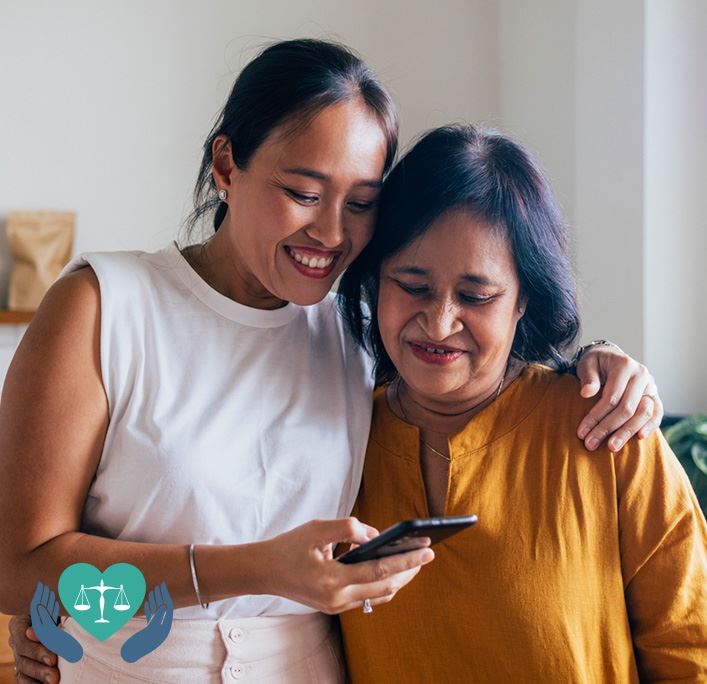
Utah Nursing Home Physical Assault Lawyers
Protecting Nursing Home Residents from Injury & Abuse
Physical assaults on nursing home residents are a genuine problem across the country. Unfortunately, it can be challenging to understand how or why a resident has suffered assault for many reasons. Many nursing home residents have cognitive dysfunction and have difficulty communicating. They may fear reporting such incidents, are over-medicated or on disabling psychotropic drugs, doubt their own experiences, distrust everyone, or are victims of isolation.
Because of this, family and friends of nursing home residents must be aware of the risks of physical assault and abuse and the indicators that such incidents have occurred.
At Elder Care Injury, our legal team understands the indignity and physical and mental trauma resulting from physical assaults on seniors in nursing homes. We take our job very seriously in fighting for justice in cases where these vulnerable adults' rights, safety, and well-being have been violated. Through injury claims and lawsuits, we hold responsible parties accountable in the courts in Salt Lake County, Ogden, and Provo, throughout Utah, as well as in Oregon, Washington, Nevada, and Idaho.
Book a free case review with a Utah nursing home physical assault attorney by contacting us online or by phone at (801) 997-5019.
Nursing Home Physical Assaults
Nursing home physical assault occurs when a resident endures bodily harm or injury due to the actions of others.
Physical assault can include:
- Hitting: Deliberate acts of physically striking a resident, whether with fists, objects, or any other form of physical force.
- Pushing: Using physical force to push a resident forcefully, potentially causing injury or harm.
- Shaking: Violently shaking a resident can lead to severe injuries, especially in vulnerable individuals such as the elderly.
- Restraining: Improperly restraining a resident using excessive force, potentially causing physical pain or injury.
- Biting: Inflicting bites on a resident, which can result in broken skin, bruises, and infections.
- Slapping: Striking a resident's face with an open hand, causing pain, bruising, or injury.
- Kicking: Intentionally kicking a resident, potentially leading to fractures, contusions, or other injuries.
- Pinching: Gripping and squeezing a resident's skin, often resulting in bruising or tissue damage.
- Hair Pulling: Yanking or forcefully pulling a resident's hair, causing pain, scalp damage, or even hair loss.
- Scratching: Using nails or other sharp objects to scratch a resident's skin, potentially resulting in cuts, abrasions, or infections.
These types of physical assaults are entirely unacceptable and should never be tolerated in nursing homes.
Staff members, including caregivers, nurses, or aides, can perpetrate them. This can occur due to various factors such as stress, burnout, inadequate training, or abusive tendencies.
Other residents can also be the source of physical assault due to cognitive impairments, behavioral issues, aggression, or lack of supervision. Because most nursing home residents suffer from some cognitive dysfunction, they are often combative, can become violent, and thus attack other residents.
Signs of Physical Assault in Nursing Home Residents
Recognizing the signs of resident assault is crucial for early detection and intervention. Some common indicators include unexplained bruises, cuts, fractures, or welts; sudden changes in behavior; signs of fear or anxiety; withdrawal from social activities; depression; torn or bloody clothing; and any unexplained injury.
As a family member or friend, if you believe a resident has suffered a physical assault, taking immediate action is crucial. Ensure the safety of your loved one by removing them from harm's way if necessary. Document any evidence or signs of abuse, report the incident to the nursing home administration, and contact local authorities if required.
You may also report it to a nursing ombudsman in your state whose job is to investigate complaints.
With the help of Elder Care Injury, you can file a civil suit against the facility for committing assault or allowing it to occur under its supervision. Depending on the case, this legal action can lead to compensatory damages for the resident, including medical expenses, pain and suffering, and more.
Protecting the Rights of Nursing Home Residents: Fighting Against Physical Assault
At Elder Care Injury, we understand the pain and distress physical assaults in nursing homes can cause. Our compassionate legal team is committed to helping families seek justice for their loved ones. We will thoroughly investigate the incident, gather evidence, and build a strong case against the responsible parties.
Our experienced nursing home abuse lawyers are skilled negotiators and tenacious litigators. We will fight to hold negligent nursing homes accountable for their actions and pursue maximum compensation for the physical, emotional, and financial damages caused by the assault.
We are here to support you every step of the way, providing guidance and unwavering advocacy. Let us be your voice in seeking justice for your loved one and ensuring that no other resident suffers a similar fate.
Contact us for help at (801) 997-5019 today.

Have Questions?
We Have Answers!
-
How Do I Contact Your Law Office?If you're in need of legal representation, you can contact Elder Care Injury by calling us at (801) 997-5019 or by submitting an online form on our website.
-
What Types of Cases Do You Represent?
At our law firm, we have dedicated and compassionate attorneys who can help you or your loved one. We provide the following legal services:
- Bed Sores
- Pressure Ulcers
- Slips, Trips, & Fall
- Malnutrition
- Dehydration
- Poor Inspections
- Medication Mistakes
- Patient Elopement
- Physical Assault
- Sexual Assault
- Bed to Wheelchair Transfer Injuries
- Pneumonia & Aspiration Pneumonia
- Infections
- Wrongful Death
-
How Can Your Law Firm Help Me?
Unfortunately, the elderly are susceptible to some of the worst mistreatment of all U.S. citizens. Our experienced attorneys seek to bring justice for nursing home abuse victims and their families.
Our litigators prepare every case for trial through an extensive investigation into the facts and circumstances; this work is done to uncover and expose the wrongdoing that has led to our client’s physical injury, neglect, emotional trauma, or financial harm, and loss of dignity, security, and respect.
-
When Should I Reach Out To An Attorney?Our attorneys can help if you or a loved one has suffered nursing home abuse and neglect, whether physical, emotional, sexual, psychological, or financial. You can discuss your case with for law firm during a free consultation. We work diligently and quickly to help our clients seek justice.
